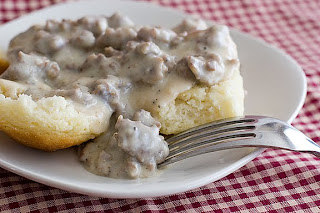
Gnarled Oak, Knotty Pine is honored to host the following story by eastern Kentucky's own Sheldon Compton.
Crutches Are for Hanging
This little building here is my church. Could be your church now that you’ve moved to these parts. We sure hope so. That’s right, we’ve got some bus seats in there for pews and a collection plate is just something everybody passes around like a hot potato, but it’s my church. And we’re always on the lookout for new members, members just like you. Fine, upstanding citizens. Hard-working men and women. Hello, ma’am. And, now what was your question, Mr. Daniels? Oh, yes, that’s right. The crutches we’ve got up on the walls in there. Crutches are for hanging. That’s what I tell these folks. Let me explain that just a little bit more. Just a little bit more. Watch your step. We’ve got one carpenter who’s a member, but he’s busy a lot. That busted board, yes sir, right there. Just step over that. You, too, Mrs. Daniels. This church holds God every Sunday, folks. Can’t you just see it around you. The wood-burning stove there in the middle. The old piano in the corner, out of tune, chimes out like a heavenly harp for us every single Sunday. This church is a survivor with the help of the Lord Almighty. Humility is the key. Realizing that the size of the building don’t matter. Bus seats and empty plates don’t make people any less devoted. The only thing that matters are the people who come in, the size of that congregation. The more the better, wouldn’t you say? And here are the crutches nailed up on both of the side walls. And there are some canes. That one was my father’s. See how it was made from a branch? He was the preacher, too. Ordained, proud, hard-working man. The hardest worker for God any of us may ever meet. Made that cane himself out of cedar. Cried like a baby when the healing took place. See, that’s what this is about, folks, all these contraptions of sickness are the sickness of Satan. My wife, Helen, is a faith healer. She took away my father’s arthritis right here in the church on February 19, 1957. He was the first one to be healed here, bless the Lord. He walked across the church like a ten-year-old skipping to school and drove a nail for that cane right up there himself. I hadn’t seen tears of joy from his face in so many years. Since then, it’s just something we do with each healing. Add something to wall. Every church has there own things they hold close and do to praise God in their own ways. This church is no different. And that man skipped like a young boy. I’m sorry. I get emotional thinking about all the good that this place of worship has brought into my life. You’ll have to excuse me, ma’am, Mr. Daniels. We ain’t suppose to cry, right Mr. Daniels? Well, I’ll shed tears of joy for God any day of the week and twice on Sunday and in front of anybody. There is no shame for that, not in my book. Oh, yes indeed. That picture. Well, I’m a little embarrassed by that picture to be honest. Helen insisted we put it right behind the altar, right in the middle of where we hang our hats and coats and what have you. That’s me about six years ago right after we started the church. It was our first revival. That’s me standing in front of the altar with my hands raised up in the air. Had a lot more hair then, my my! Didn’t we all, though. Old time is a-flyin, right? But that’s me and you see the crowd we had for that first revival. That’s about hundred people crowded into this little place, and that was even before Helen received the touch. Lord, look at that picture! Embarrassing, but I shouldn’t think that way. Look here. Lean in close. Everybody’s looking right at me there with my head lowered and the almighty power of the Lord working through me. All of them except this little girl here. See her there? Yes, that one. She’s looking directly at the camera. I always thought her eyes looked painted on there, like two little chocolate drops. I can’t help but think about Dr. King’s speech the other day in Washington, the one about letting freedom ring, just letting all that freedom ring. When I look at her in that picture all by herself watching the camera timid as a little colored rabbit, I sometimes think now that she might be scared in that picture. For the life of me I can’t remember her being here, but it happened, cause right there she is. We had a family come in, newcomers just like you fine folks. It could have been their girl. No one is turned away, you know. That’s for sure. I can’t really say I know who she is, to be honest, though. But I think of Dr. King every time I see that picture, now. The whole gang of us watched it on the television right when it was happening, my family, just like your family probably did, right Mr. Daniels? I listened to every word and my boys sat still as stones in the floor and never moved a muscle. It’s a fact! I kid you not! Dr. King. Boy! There’s a feller who knows what he’s talking about.

Sheldon Lee Compton is the author of The Same Terrible Storm (Foxhead Books, 2012). He survives in Eastern Kentucky.










